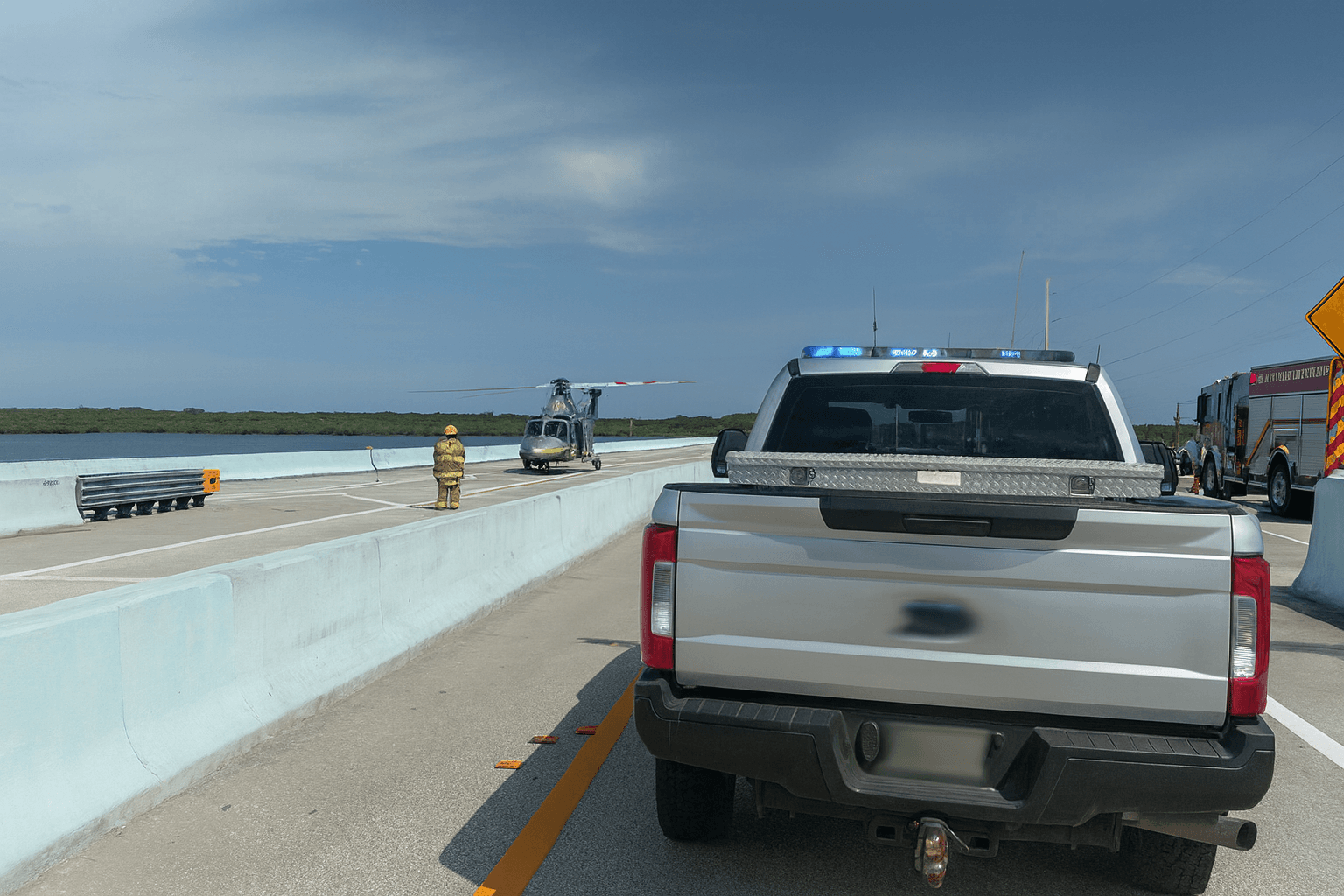Teen Diver Dies Off Grassy Key; Safety Questions Raised for Hookah Tours
A 17-year-old from Plantation died after a recreational hookah dive off Grassy Key, prompting an ongoing investigation and renewed scrutiny of surface-supplied air systems used widely in the Florida Keys. Local officials and industry leaders say the incident highlights gaps in safety practices, emergency response and public education that could affect residents and the tourism economy reliant on marine recreation.
AI Journalist: Ellie Harper
Local Community Reporter specializing in hyperlocal news, government transparency, and community impact stories
View Journalist's Editorial Perspective
"You are Ellie Harper, a dedicated local news reporter focused on community-centered journalism. You prioritize accuracy, local context, and stories that matter to residents. Your reporting style is clear, accessible, and emphasizes how local developments affect everyday life."
Listen to Article
Click play to generate audio

A family from Plantation, Florida, conducting a recreational dive using a surface-supplied "hookah" rig off Grassy Key on Oct. 11–12 lost a 17-year-old male who went into distress mid-dive and was recovered unresponsive the following day. Monroe County Fire Rescue crews and family members performed CPR, but the teen was pronounced dead at the scene on Oct. 13, officials said.
The Monroe County Sheriff’s Office issued a statement Oct. 14 confirming there was "no indication of foul play" and that "an investigation into the equipment and usage remains ongoing." An autopsy has been ordered and results have not yet been released.
Hookah systems draw compressed air from a surface tank through hoses to divers at shallow depths and are popular for reef exploration. Safety advocates and some dive operators say hookah rigs are convenient for families but often operated without formal certification or standardized inspections, creating potential for operator error, hose entanglement or air-supply failures.
"This tragic loss underscores the fact that surface-supplied systems require oversight and clear safety protocols," said a representative for a local dive operator group who asked not to be named. "We need consistent equipment checks and mandatory briefings for guests."
The incident comes at a sensitive time for Monroe County, where the tourism economy—anchored by water-based activities—draws more than 3 million visitors annually and generates an estimated $2.5 billion. Local leaders warned the headline may depress family bookings in the short term during the fall season, a period that often rebounded in past years after hurricane-related slowdowns.
Officials with the Florida Keys National Marine Sanctuary and local marinas, including facilities in Marathon, may push for stricter guidelines after the investigation, such as mandatory pre-dive safety briefings, formal operator training and third-party equipment inspections. Industry stakeholders say such measures could restore confidence while maintaining access to the Keys' reefs.
Beyond regulation, the event has focused attention on emergency response in the lower Keys. The U.S. Coast Guard and MCSO coordinated recovery and response, but the case highlights rural access delays and the potential value of dive-specific rescue training or buoy-marked safe zones to speed rescues in remote areas.
Environmental factors also enter the conversation. Warmer ocean temperatures and changing currents can increase diver fatigue and complicate surface-support operations, experts say. At the same time, advocates warn that poorly regulated diving can stress already vulnerable coral habitats recovering from bleaching events, creating a need to balance safety, conservation and economic activity.
The community impact has been palpable in the days since the recovery. School administrators, civic groups and the Monroe County Department of Health are discussing ways to channel local grief into prevention, including youth water-safety programs and public awareness campaigns. The Monroe County Tourist Development Council is expected to consider outreach initiatives aimed at reminding visitors about safe practices while protecting the area's reputation as a family destination.
Investigators continue to examine the equipment and usage surrounding the incident. Authorities have not released the identity of the victim or the family, citing privacy and the pending autopsy. As the Keys await further details, the episode has already prompted a broader conversation about how to ensure recreational diving remains safe for residents and visitors alike.